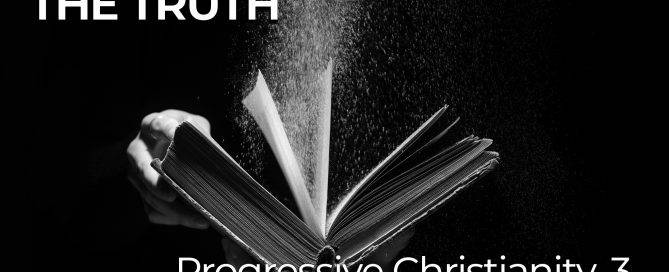2020: Global Pandemic or Revival?
 This has been both a strange and interesting year. No one could have predicted that a global pandemic would hit and affect us all in such a severe way. The majority of the world’s countries experienced national lockdowns and are now facing economic crises. Third World countries are suffering the most.
This has been both a strange and interesting year. No one could have predicted that a global pandemic would hit and affect us all in such a severe way. The majority of the world’s countries experienced national lockdowns and are now facing economic crises. Third World countries are suffering the most.
Despite all of this, 2020 is a year of celebration for Harvesters Ministries. We are celebrating 20 years of Church Planting. None of this would have been possible without your generous gifts over the past 20 years.
It has been amazing to see how God has expanded this ministry from 1 church in Malawi to more than 70,000 churches worldwide. By the grace of God pastoral training is currently happening in 43 languages – 20 years ago this was all just a dream.
Fear is not from God
When the pandemic was announced and all international travels were cancelled, it was human nature to feel uncertain, but our faith is in God. Fear is not from God. Let’s never give the devil an opportunity to cause us to be despondent.
The phrase, “Do not be afraid”, is written in the Bible 365 times. This is a daily reminder that we should place our hope in Jesus and stop living in fear.
Despite all of these struggles, God has opened new opportunities to train pastors and church leaders in Evangelism, Discipleship and Church Planting. Most of the training is currently taking place via internet technology and some of the lockdowns have been relaxed. It is now possible for some local church leaders to travel to villages and share the Gospel with unbelievers.
People are Hungry for the Truth
Many people are placing their hope in worldly things instead of placing their faith in Jesus Christ. This pandemic has left people across the world looking for the Truth. People are hungry for Jesus and the result is that many people have placed their trust in Jesus during this time.
One story from Myanmar really touched our hearts. The Burmese government are allowing public gatherings again. Many of the church leaders grabbed this opportunity to reach out to neighbouring villages. Pastor Kyar* said that people were eager to hear the Good News. Many people, young and old, accepted Jesus Christ as their personal Redeemer and Saviour.
Many of these pastors also received much needed aid. The Coronavirus pandemic have left people in terrible circumstances. Many pastors and their families were starving and struggling to put food on the table. It was impossible for them to earn a living during the lockdown.
Thanks to loyal donors it was possible to reach these pastors and their families with much needed food parcels. These families took this opportunity and shared the little that they had with their neighbours. Many of these families that they helped were unbelievers and accepted Jesus Christ after they experienced this openhearted kindness and generosity.
*Name changed for protection
Newsletter – November 2020
Click here to download our latest newsletter with updates from Mozambique and Southeast Asia.
Download the UK Newsletter – Nov 20
Download the South Africa and International Newsletter – Nov 20
Download the Afrikaans Newsletter – Nov 20
Download the USA Newsletter – Nov 20

As suas Doações estão Abrindo o Caminho na Amazônia
 A selva amazônica selvagem e indomada é o lar de golfinhos cor de rosa, sucuris verdes, crocodilos e jacarés. As tribos são tão desregradas e indomáveis quanto seu ambiente vasto, exuberante e cheio de vegetação. O rio Amazonas tem 6.575 km (4.086 milhas) de extensão e atravessa vários países e comunidades na América do Sul.
A selva amazônica selvagem e indomada é o lar de golfinhos cor de rosa, sucuris verdes, crocodilos e jacarés. As tribos são tão desregradas e indomáveis quanto seu ambiente vasto, exuberante e cheio de vegetação. O rio Amazonas tem 6.575 km (4.086 milhas) de extensão e atravessa vários países e comunidades na América do Sul.
As Tribos Amazônicas Precisam de Jesus.
Infelizmente, muitas comunidades indígenas na Amazônia não têm os mesmos valores morais que os cristãos. Em muitas dessas comunidades, as crianças são abusadas porque onde elas estão a vida humana não é valorizada. É de partir o coração que a vida de uma criança inocente não seja valorizada, mas para alguns povos da Amazônia isso é normal. Em Marcos 10 versículo 14 é claro ver o amor que Jesus tem pelas crianças, “Ele lhes disse: Deixai que as criancinhas venham a mim, e não os impeçais, porque o reino de Deus pertence a tais”.
Muitas das tribos amazônicas possuem xamãs que possuem amplo conhecimento sobre as plantas e animais da região. O xamã frequentemente se comunica com espíritos e expõe as tribos à escuridão. É por isso que é tão importante alcançar essas tribos com o Evangelho e ganhar suas almas para Jesus.
Custe o que Custar!
O ar quente e úmido da selva nunca vai roubar a alegria nem matar a empolgação de quem traz as Boas Novas. Apesar do calor insuportável e dos mosquitos com excesso de peso; Deus também está presente na Amazônia.
Depois de anos de oração e preparação, finalmente foi possível para os Harvesters começarem a treinar pastores na Amazônia há dois anos.
A única maneira de alcançar esses grupos indígenas é voando em um pequeno avião de 8 lugares e, em seguida, viajando o resto do caminho por barco. Demora alguns dias apenas para chegar à primeira comunidade. Podem-se ver algumas coisas interessantes e comer pratos muito estranhos nessas viagens.
Bodó é um tipo de bagre comedor de lama, cabeça-dura, preto, lábios grossos, olhos enviesados, bagre escorregadio e um favorito entre as tribos amazônicas! Nós fomos servidos sopa de peixe, ovos de peixe e carne de peixe durante nossa última viagem. Eles nos observaram cuidadosamente enquanto comíamos o peixe, como fazem os missionários corajosos e culturalmente sensíveis. Eles orgulhosamente anunciaram: “Agora vocês fazem parte de nós – são verdadeiramente amazônicos”. Fingimos um sorriso quando um último ovo de peixe encontrou seu caminho escorregadio em nossas gargantas.
Testemunhos da Selva
Durante uma recente visita à Amazônia, uma animada pastora, Sadia, estava em chamas. Ela se certificou de que entendeu toda a “mecânica” de como plantar uma igreja e lá foi ela … e plantou uma igreja – mesmo antes de terminar o treinamento.
A Sadia não pode fazer isso sozinha! Ela está atualmente treinando pastores estudantes e seus dons estão tornando isso possível. A Sadia é da vila de Santo Antônio do Içá que está se expandindo muito rapidamente e há uma grande necessidade do Evangelho.
O Reino de Deus está crescendo na Amazônia
Desde a primeira sessão de treinamento, há dois anos, 423 igrejas foram plantadas somente no Brasil e mais de 170 pastores receberam treinamento. Muitos desses pastores alcançam a Amazônia. Eles são apaixonados por ganhar almas para Jesus. Doações generosas de doadores como você tornaram possível treinar estes pastores em Evangelismo, Discipulado e Plantação de Igrejas.
Outra vitória foi quando foi possível distribuir a Palavra de Deus no meio da selva. A maioria dos novos crentes nas tribos amazônicas não possui uma Bíblia e não tem como comprar uma. Seus dons possibilitaram levar a Palavra de Deus a algumas das aldeias mais remotas às margens do poderoso rio Amazonas. A Palavra de Deus não entra simplesmente em uma comunidade, ela transforma uma comunidade.
As portas que o Senhor abriu na Amazônia nos lembram da promessa de Deus em Isaías 43:19 “Veja, estou fazendo uma coisa nova! Que está saindo à luz; você não percebe isso? Estou abrindo caminho no deserto e riachos no ermo. ”
Your Gifts are Opening the way in the Amazon
The wild and untamed Amazon jungle is home to pink dolphins, green anacondas and black caiman alligators. The tribes are as unruly and untamed as their vast, luscious and overgrown environment. The Amazon river is 6,575 km (4,086 mi) long and runs through numerous countries and communities in South America.
The Amazon Tribes need Jesus

Unfortunately, many indigenous communities in the Amazon do not have the same moral values as Christians. In many of these communities, children are abused as they do not value human life. It is heart-breaking that an innocent child’s life is not valued, but to the people of the Amazon this is normal. In Mark 10 verse 14 it is clear to see the love that Jesus has for children, “He said to them, “Let the little children come to Me, and do not hinder them, for the kingdom of God belongs to such as these.”
Many of the Amazon tribes have shamans who have a wide knowledge about the plants and animals in the region. The shaman often communicates with spirits and exposes the tribes to darkness. This is why it is so important to reach these tribes with the Gospel and win their souls for Jesus.
Whatever it takes!
The hot humid air of the jungle will never steal the joy or kill the excitement of those who bring the Good News. Despite the drenching heat and the overweight mosquitoes; God is present in the Amazon too.
After years of prayer and preparation it was finally possible for Harvesters Ministries to start training pastors in the Amazon two years ago.
The only way to reach these indigenous groups, is by flying in a small 8-seater airplane and then travelling the rest of the way per boat. It takes a few days just to reach the first community. One can see some interesting things and eat very strange dishes on these trips.
‘Badhu’ is a type of mud eating, hard-headed, blackish, thick-lipped, skew-eyed, slippery catfish and a favourite among the Amazon tribes! We were served fish soup, fish eggs and fish meat during our last trip. They watched us carefully as we ate the fish as brave, culturally, sensitive missionaries do. They proudly announced, “Now you are part of us – truly Amazonian”. We faked a smile as one last fish egg found its slippery way down our throats.
Testimonies from the Jungle
During a recent visit to the Amazon a lively pastor, Sadia, was full of fire. She made sure she understood all of the ‘mechanics’ of how to plant a church and off she went … and planted a church – even before the training was done.
Sadia cannot do this alone! She is currently training student pastors and your gifts are making this possible. Sadia is from the Santo Antonio village which is expanding quite rapidly due and there is a great need for the Gospel.
God’s Kingdom is Growing in the Amazon
Since the very first training session two years ago 423 churches have been planted in Brazil alone and more than 170 pastors have received training. Many of these pastors reach out into the Amazon. They are passionate about winning souls for Jesus. Generous gifts from donors like you have made it possible to train these pastors in Evangelism, Discipleship and Church Planting.
Another victory was when it was possible to hand out the Word of God in the heart of the jungle. Most of the new believers in the Amazon tribes do not own a Bible and have no way of ever purchasing one. Your gifts made it possible to take the Word of the God to some of the most remote villages on the banks of the mighty Amazon river. The Word of God does not simply enter a community, it transforms a community.
The doors that the Lord has opened in the Amazon reminds us of God’s promise in Isaiah 43:19 “See, I am doing a new thing! Now it springs up; do you not perceive it? I am making a way in the wilderness and streams in the wasteland.”
A Verdade – Parte 14 : Cristianismo Progressivo (4) – A Inerrância e Autoridade das Escrituras
Estamos continuando com esta série sobre A Verdade e particularmente sobre o Cristianismo Progressivo.
Leia: 2 Timóteo 3: 10-17
10 Você, no entanto, sabe tudo sobre meu ensino, meu estilo de vida, meu propósito, fé, paciência, amor, resistência, 11 perseguições, sofrimentos – que tipo de coisas aconteceram comigo em Antioquia, Icônio e Listra, as perseguições que suportei . No entanto, o Senhor me resgatou de todas elas. 12 Na verdade, todos os que desejam viver uma vida piedosa em Cristo Jesus serão perseguidos, 13 enquanto os malfeitores e impostores irão de mal a pior, enganando e sendo enganados. 14 Mas, quanto a ti, continua no que aprendeste e de que te fostes inteirado, porque conheces aqueles de quem o aprendeste, 15 e como desde a infância conheces as Sagradas Escrituras, que podem torná-lo sábio para a salvação por meio fé em Cristo Jesus. 16 Toda a Escritura é inspirada por Deus e é útil para ensinar, repreender, corrigir e instruir na justiça, 17 para que o servo de Deus [a] possa estar totalmente equipado para toda boa obra.
Inerrância
Os cristãos veem que a inspiração da Bíblia vem totalmente de Deus e, portanto, que o texto em seu formato original é inerrante.
- Não contém erros ou contradições.
- Nossa afirmação de que a Bíblia é inspirada e inerrante está enraizada em nossa Doutrina de Deus – como Deus é Verdadeiro e Confiável e capaz de fazer todas as coisas, Ele é capaz de dar ao homem Escrituras Verdadeiras e Confiáveis.
Devemos, entretanto, perceber que os tradutores não têm o mesmo nível de inspiração que os escritores das Escrituras tiveram.
- Muitas traduções hoje têm como razão de existência uma base econômica.
- Venda de Bíblias.
- Muitas das traduções de hoje chegam até nós de um ponto de vista teológico específico, incluindo teologia liberal, feminismo, cristianismo progressivo, qualquer um de uma variedade de pontos de vista teológicos.
- Vários nem são traduções.
- Estes não devem ser usados como sua fonte primária de estudo ou ensino da Palavra de Deus.
- Alguns são paráfrases.
- Não podemos alegar inerrância quando, obviamente, lado a lado, quatro ou cinco traduções ou paráfrases em português são tão claramente diferentes.
- Estes são mais humanos do que inspirados por Deus.
- Isso significa que você precisa encontrar a melhor tradução para uso pessoal e para ensinar a Palavra.
Autoridade
Isso significa que a Bíblia é um guia confiável, preciso e dado por Deus para a fé e a vida.
- É diferente e superior em todos os aspectos a qualquer outra escrita considerada sagrada.
- Com base em nossa visão de Deus, nossa crença na inspiração e no entendimento de que a Palavra é inerrante em seu formato original, os crentes afirmam que a Bíblia é a Palavra de Deus e deve ser lida, estudada e obedecida.
- Confiamos no Autor e, portanto, confiamos em Sua revelação como suficiente.
Alguns dizem:
“Há alguns, por exemplo, que afirmam a inspiração das Escrituras, mas rejeitam sua inerrância. Esta visão limitada da inerrância soa, à primeira vista, evangélica: Eu acredito que a Escritura é verdadeira em sua mensagem de fé. Mas em uma investigação mais aprofundada, esta posição nega que as Escrituras sejam verdadeiras em tudo o que afirma. Sim, é verdade em sua mensagem do evangelho, mas, além disso, pode errar em seus detalhes”.
Ironicamente, essa visão afirma que ainda pode se recorrer a Sola Scriptura, como se as Escrituras ainda fossem a autoridade final.
O problema é que essa visão não pode reivindicar que as Escrituras são sua autoridade inerrante final, que é o que a igreja sempre assumiu ao proclamar Sola Scriptura.
Em que você vai basear sua fé, sua vida e sua eternidade?
- Uma miscelânea de escritos de falsas religiões e filosofia ou da Eterna Palavra de Deus?
- O que tem autoridade em sua vida?
- Quem você está ouvindo quando precisa de conselhos sobre casamento, quando enfrenta tentações e quando sua vida desmorona?
- Os gurus da autoajuda? Algum post aleatório no YouTube ou a Bíblia?
A ascensão do Cristianismo Progressivo pode estar intimamente ligada à preguiça da Igreja em estudar a Palavra de Deus e a fraqueza dos pastores no púlpito quando se trata de ensino bíblico sólido, que também é prático.
- Dizer que não queremos doutrina, só queremos Jesus é uma desculpa e uma mentira do diabo.
- Tentar ser inclusivo é enfurecer o ciúme de Deus e é equivalente à idolatria.
- Elevar as palavras de Jesus e negar os escritos dos Apóstolos é rejeitar toda a Palavra de Deus e
- Escolher apenas as Escrituras que me permitem continuar em meu pecado é tolice.
Finalmente
Falando da Bíblia, um autor desconhecido disse:
Este livro contém: a mente de Deus, o estado do homem, o caminho da salvação, a condenação dos pecadores e a felicidade dos crentes.
Sua doutrina é sagrada, seus preceitos são vinculativos, suas histórias são verdadeiras e suas decisões são imutáveis.
Leia para ser sábio, acredite para ser salvo e pratique-o para ser santo. Ele contém luz para direcioná-lo, alimento para apoiá-lo e conforto para animá-lo.
É o mapa do viajante, o cajado do peregrino, a bússola do piloto, a espada do soldado e a carta do cristão. Aqui o céu é aberto e as portas do inferno reveladas.
Cristo é seu grande tema, nosso bem é seu desígnio e a glória de Deus seu fim. Deve preencher a memória, governar o coração e guiar os pés.
Leia devagar, com freqüência e em oração. É uma mina de riqueza, saúde para a alma e um rio de prazer.
É dado a você aqui nesta vida, será aberto no Julgamento e está estabelecido para sempre.
Envolve a mais alta responsabilidade, recompensará o maior trabalho e condenará todos os que brincam com seu conteúdo.
Autor desconhecido
The Truth Part 14: Progressive Christianity (4) – Sermon by Steven Loots
[buzzsprout episode=’7368622′ player=’true’]
A Verdade – Parte 13: Cristianismo Progressivo (3) – A Autoridade das Escrituras
Saudações. Continuando na série sobre a verdade e particularmente sobre o cristianismo progressivo.
Leia 2 Timóteo 3:10 – 17
10 Você, no entanto, sabe tudo sobre meu ensino, meu estilo de vida, meu propósito, fé, paciência, amor, resistência, 11 perseguições, sofrimentos – que tipo de coisas aconteceram comigo em Antioquia, Icônio e Listra, as perseguições que suportei . No entanto, o Senhor me resgatou de todos elas. 12 Na verdade, todos os que desejam viver uma vida piedosa em Cristo Jesus serão perseguidos, 13 enquanto os malfeitores e impostores irão de mal a pior, enganando e sendo enganados. 14 Mas, quanto a ti, continua no que aprendeste e no que fostes convencido, porque conheces aqueles de quem o aprendeste, 15 e como desde a infância conheces as Sagradas Escrituras, que podem torná-lo sábio para a salvação por meio fé em Cristo Jesus. 16 Toda a Escritura é inspirada por Deus e é útil para ensinar, repreender, corrigir e orientar na justiça, 17 para que o servo de Deus [a] possa estar totalmente equipado para toda boa obra.
Tudo se mantém ou cai dependendo da sua visão das Escrituras. O que é a Bíblia? Apenas mais um livro? Uma das muitas escrituras sagradas? Algo que contém bons conselhos? Precisamos de toda a Bíblia ou apenas das palavras de Jesus?
Quando olhamos para os perigos representados pelo Cristianismo Progressivo, vemos que tudo se refere à Bíblia. Se alguma coisa pudesse resumir o Cristianismo Progressivo em uma frase, seria que eles se afastaram da confiança na autoridade da Bíblia, para olhar mais para a experiência, consciência e sentimentos.
Um dos princípios de fé expressos pelo movimento cristão progressista é o seguinte:
“Afirme que os ensinamentos de Jesus fornecem apenas uma das muitas maneiras de experimentar “Deus”, a Santidade, Unicidade e Unidade da vida, e que as podemos obter de diversas fontes de sabedoria, incluindo a Terra, em nossa jornada espiritual ”
Comentários que você pode ouvir:
- A Bíblia é um livro humano …
- Não concordo com o apóstolo Paulo nessa questão…
- A Bíblia tolera a imoralidade, por isso somos obrigados a rejeitar o que ela diz em certos lugares;
- A Bíblia “contém” a palavra de Deus…
“Existem muitos livros hoje que afirmam ser a Palavra de Deus”. O Alcorão – o livro sagrado do Islã – afirma ser a Palavra de Deus. O Livro de Mórmon afirma ser a Palavra de Deus. Os hindus acreditam que o Bhagavad Vita é a fonte da verdade eterna. Karl Marx, com uma visão de mundo ateísta, afirmou que sua escrita, O Manifesto Comunista, era a verdade última. Os progressistas diriam que todos eles contêm a verdade e que devemos aprender com todos eles. Em sua mente, a Bíblia não é de forma alguma elevada acima dos livros sagrados – embora afirmem ser cristãos e professem crer nos ensinos de Jesus.
Nós, cristãos, acreditamos que a Bíblia é a Palavra de Deus e a fonte eterna da Verdade pela qual vivemos.
Em seu ensino sobre este assunto, existem fortes ligações com outros princípios de suas doutrinas centrais. Por exemplo.
- Se você mantiver firmemente que a Bíblia é a única Palavra de Deus, eles dirão que você tem a mente fechada ou você é mesquinho.
- Ao ler todos os outros livros, como livros de fé, eles diriam que estão continuando a pesquisar, estudar e aprender como parte da jornada de uma vida inteira para obter maior conhecimento.
- Apegando-se à Bíblia; eles argumentariam que os cristãos pararam de pesquisar, ou não estão mais aprendendo, fecharam o intelecto e têm a mente estreita.
Em segundo lugar, olhando para a mensagem anterior, dissemos que os cristãos progressistas costumam usar os mesmos termos que nós; mas dão-lhes novos significados.
- Quando olhamos para a Bíblia, usamos palavras como inspiração, inerrância e autoridade.
- Muitos progressistas usariam esses termos, mas dão-lhes significados completamente diferentes.
- Para eles, inspirado torna-se inspirador. Em outras palavras, a Bíblia nos inspira a viver mais como Jesus, em vez de ser inspirada pelo Deus vivo.
Para rebater alguns desses argumentos, vamos ter certeza de que entendemos o que queremos dizer com essas palavras, porque isso solidificará o que acreditamos sobre a Bíblia e porque dizemos que somente a Bíblia tem autoridade em nossas vidas.
Em primeiro lugar, qual é a nossa visão da inspiração bíblica? De onde isso vem? Pode ser confiável?
A visão cristã da inspiração bíblica.
A inspiração vem da palavra grega “theopneustos” de 2 Timóteo 3:16 que nos diz que
- Todas as escrituras são inspiradas por Deus.
- Toda a Escritura é inspirada por Deus.
- Em outras palavras, poderíamos dizer que Deus a expirou, portanto, inspirado por Deus –
- Deus soprou para for a;
- Saiu de Deus;
- Não é apenas dada, preenchida e governada pelo Espírito de Deus, mas também: Ele está ativamente a expirando, espalhando e tornando conhecida a Palavra de Deus.
- Em outras palavras, Deus soprou a Escritura e, portanto, Paulo não estava dizendo que a Escritura é inspiradora (embora isso também seja verdade), mas que a Escritura é um produto divino e deve ser abordada e estimada como tal.
Além disso, o significado de Paulo é muito claro que todas as Escrituras,
- Tudo o que se enquadra na categoria de Escritura tem seu lugar entre as escrituras sagradas e, porque é soprado por Deus, é proveitoso para a orientação da fé e da vida.
- Em outras palavras, a Bíblia é inspirada por Deus e quando dizemos que é exalada (inspirada) por Deus, dizemos que a Bíblia é de origem e qualidade divinas.
A questão que surge é: O que foi inspirado foram as ideias, ou as palavras escritas reais?
- Deus deu aos escritores da Bíblia uma ideia e permitiu que eles a desenvolvessem por si próprios usando suas próprias palavras, ideias e experiência?
- Essa ideia original de Deus foi então fortemente influenciada pela cultura, falta de educação, vocabulário limitado ou um mal-entendido do que Deus talvez estivesse tentando dizer?
- Não. O que é inspirado é o produto real escrito.
- É a própria escritura, o texto escrito, que é o sopro de Deus.
A ideia essencial aqui é que todas as escrituras têm o mesmo caráter dos sermões dos Profetas, primeiro quando pregados e depois quando foram escritos.
19 Também temos a mensagem profética como algo totalmente confiável, e farão bem em prestar atenção a ela, como a uma luz que brilha em um lugar escuro, até o dia amanhecer e a estrela da manhã nascer em seus corações. 20 Acima de tudo, você deve entender que nenhuma profecia das Escrituras surgiu pela própria interpretação do profeta sobre as coisas. 21 Pois a profecia nunca teve sua origem na vontade humana, mas os profetas, embora humanos, falaram da parte de Deus conforme eram conduzidos pelo Espírito Santo.
2 Pedro 1:19 – 21
Pedro nos explica a origem divina de cada profecia das Escrituras. Em outras palavras, a Escritura não é uma palavra humana, ou fruto do pensamento humano, nem é arte ou literatura em sua origem.
- É a palavra de Deus,
- Falada pelos lábios dos homens ou escrita com a pena do homem.
- Em outras palavras, a Escritura tem dupla autoria e o homem é apenas o autor secundário; o autor principal, por meio de cuja iniciativa, inspiração e esclarecimento, e sob cuja supervisão, cada escritor humano fez sua obra, é Deus o Espírito Santo.
- Portanto, podemos dizer que a Escritura inspirada é:
- A revelação escrita,
- O registro bíblico da auto-revelação de Deus na história da redenção;
- E não é meramente um testemunho humano dessa revelação,
- É em si uma revelação;
Quando se trata do processo revelador por meio do qual Deus deu à igreja sua obra salvadora na história e sua própria interpretação autorizada de seu lugar em seu plano eterno, a Bíblia é o resultado da obra de Deus.
- A inspiração, portanto, garante a verdade de tudo o que a Bíblia afirma, assim como a inspiração dos profetas garantiu a verdade da representação da mente de Deus.
O papel do homem na introdução da Bíblia era meramente transmitir o que ele havia recebido diretamente do Espírito Santo.
- Isso não desconsidera sua contribuição humana dentro da pesquisa histórica, meditação teológica, estilo linguístico, etc .; entretanto, teologicamente, do ponto de vista do conteúdo, a Bíblia considera os escritores humanos como não tendo contribuído com nada e as Escrituras são inteiramente criação de Deus.
- Este sempre foi o ponto de vista dos cristãos ao longo da história, desde os profetas e apóstolos, por toda a igreja primitiva e até que a teologia liberal apareceu.
The Truth Part 13: Progressive Christianity (3) – Sermon by Steven Loots
[buzzsprout episode=’7708546′ player=’true’]
Ore pela Zâmbia
 Zâmbia é um país acidentado com muitos recursos naturais – incluindo minerais, vida selvagem, silvicultura, água doce e terras aráveis. No coração deste precioso país está o poderoso Rio Zambeze.
Zâmbia é um país acidentado com muitos recursos naturais – incluindo minerais, vida selvagem, silvicultura, água doce e terras aráveis. No coração deste precioso país está o poderoso Rio Zambeze.
Uma das áreas onde os líderes da igreja estão sendo treinados em Discipulado, Evangelismo e Plantação de Igrejas é a região do Cinturão de Cobre. Existem milhares de descrentes que nunca ouviram as Boas Novas.
A tribo Luvale vive na parte noroeste do país e é o segundo grupo de pessoas que os Harvesters estão treinando. Eles estão em extrema necessidade do Evangelho. Existem mais de 700 mil Luvale que perecerão para sempre se não aceitarem Jesus Cristo como seu Salvador.
A Zâmbia passou por uma crise há algum tempo, onde muitas pessoas foram terrivelmente afetadas por uma enchente. As áreas que geralmente estão completamente secas foram completamente inundadas. As pessoas viviam com medo e precisavam atravessar rios cheios de crocodilos. Pontes foram destruídas, casas foram danificadas e as pessoas perderam muitos de seus pertences.
Um de nossos parceiros voluntários aproveitou a oportunidade e disponibilizou barcos para ajudar as pessoas a atravessar a água com segurança. Ele aproveitou a oportunidade para compartilhar o Evangelho com aqueles que ainda não conhecem Jesus. Isso é evangelismo em ação!
Tudo isso foi possível por meio do treinamento dos Harvesters. Os pastores foram equipados para compartilhar o Evangelho e alcançar os perdidos com a Verdade.
Baixe o Guia de Oração deste mês para orar pelo povo da Zâmbia. Ore conosco por um país diferente a cada dia e mude vidas com suas orações. Ore para que os perdidos tenham a oportunidade de ouvir a Palavra de Deus antes que seja tarde demais.
Em Jeremias 33: 3 está claro que o Senhor responde às orações:
“Clame a mim e eu responderei e lhe direi coisas grandes e inescrutáveis que você não conhece.”
Clique neste link para ver o que os Harvesters estão fazendo em Zâmbia:
Sharing the Gospel on the Zambezi River
 Zambia is a rugged country with many natural resources – including minerals, wildlife, forestry, fresh water and arable land. At the heart of this precious country is the mighty Zambezi River.
Zambia is a rugged country with many natural resources – including minerals, wildlife, forestry, fresh water and arable land. At the heart of this precious country is the mighty Zambezi River.
One of the areas where church leaders are being trained in Discipleship, Evangelism and Church Planting is the Copper Belt region. There are thousands of unbelievers who have never heard the Good News.
The Luvale tribe live in the north-western part of the country and it’s the second group of people that Harvesters is training. They are in dire need of the Gospel. There are more than 700 000 Luvale who will perish forever if they do not accept Jesus Christ as their Saviour.
Zambia experienced a crisis a while ago where many people were horribly affected by a flood. Areas that are usually bone dry were completely flooded. People were living in fear and having to cross rivers full of crocodiles. Bridges were washed away, homes were damaged and people lost many of their belongings.
One of our volunteer partners seized this opportunity and made boats available to help the people cross the water safely. He used this opportunity to share the Gospel with those who do not yet know Jesus. This is evangelism in action!
This was made possible through Harvesters Ministries’ training. Pastors were equipped to share the Gospel and reach the lost with the Truth.
Pray with us that the lost will have the opportunity to hear God’s Word before it is too late.
In Jeremiah 33: 3 it is clear that the Lord answers prayers, “Call to me and I will answer you and tell you great and unsearchable things you do not know.”
Click on this link to see what Harvesters Ministries is doing in Zambia:
Families in Ethiopia Need Your Help
 The COVID-19 pandemic has changed life, and the world, as we know it. Millions of people are still currently in lockdown in their countries. Many pastors and churches in Third World countries have no access to food. Without the intervention of generous believers and donors they will surely starve. One such country is Ethiopia.
The COVID-19 pandemic has changed life, and the world, as we know it. Millions of people are still currently in lockdown in their countries. Many pastors and churches in Third World countries have no access to food. Without the intervention of generous believers and donors they will surely starve. One such country is Ethiopia.
“In 2018 God opened a mighty door for us as Harvesters Ministries in the beautiful country of Ethiopia in a partnership with Emanuel United Church of Ethiopia. Pastor Getahun Tadesse, the president of the movement, gave us the right hand of fellowship, so we started training church planters in Addis Ababa,” said Thinus Botha, Regional Director of East Africa.
Ethiopia is a very strategic country in the infamous Horn of Africa. Many Christians from this region suffer severe persecution and hardship. Ethiopia as a nation is not new to handling and facing crises.
“COVID-19 has brought along new challenges for pastors and their families. For months they could not gather as believers and pastors had no income, causing severe problems and leaving many on the brink of starvation,” explained Thinus.
Through the generous gifts and donations of donors and partners it was possible to reach out to some of those who are struggling. 180 Pastors and their families received much needed food parcels and other necessities that they cannot afford.
“Allow me to tell you a story of a pastor in a region called Dukem. It is one of the most persecuted areas for Christians in Ethiopia. I cannot disclose his identity for his own safety. His wife was pregnant with their third child and on the brink of giving birth. But they had no food in the house for several days and they cried out to God for help. So God answered their prayers through the help of Harvesters Ministries. They received lifesaving food just in time. Right after they received the aid, his wife gave birth to a new member of their family. They referred to the food as miracle food like manna,” shared Thinus passionately. 
This is only one of many testimonies of how your generous gifts and donations have impacted the lives of pastors and their families who were close to starvation.
These pastors and families are forever grateful for your help and support during this pandemic. The work is however not done. There are still many more families in Ethiopia who desperately need your help.
Prayerfully consider giving your best gift today and help a family in need by clicking on this link: https://www.harvestersministries.com/en/donate/
Your Gifts are Helping to Fund the Travelling Church of Mongolia
 Mongolia – a country with a strong nomadic culture. This nation with a population of a mere 3 million people has a dire need for the Gospel. Most of the time one has to travel more than 50 kilometres before reaching the next believer. More often than not one will only find one Christian family in an entire village or community.
Mongolia – a country with a strong nomadic culture. This nation with a population of a mere 3 million people has a dire need for the Gospel. Most of the time one has to travel more than 50 kilometres before reaching the next believer. More often than not one will only find one Christian family in an entire village or community.
Even though Christians are far and few between, Christianity has grown from a mere 4 believers in 1990 to more than 80,000 believers today. This makes Mongolia one of the fastest growing Christian populations in the world. This was made possible largely through the initial work of foreign missionaries.
Some of the challenges in Mongolia include poverty and the fact that many of the country’s people who live in rural Mongolia live a nomadic lifestyle. Many people live in Gers (tent-like structures) – they are mostly herdsman and live in a vast wilderness where it has always been difficult for the Gospel to penetrate. These families pack up their Gers, load them on camels and move across the country. This happens up to 11 times per year.
There are small villages of isolated and needy people all across Mongolia’s landscape. “Mongolia has been one of the last political countries in the world to gain a Christian church of any kind,” explains the Regional Director of Southeast Asia for Harvesters Ministries.
This creates the ideal circumstances for the Harvesters model, where we train local church leaders in Discipleship, Evangelism and Church Planting. This is the perfect way to reach these travelling families of Mongolia.
The Mongolian Church is just one generation old. There have not been enough indigenous church leaders and something needs to be done fast to change this. There has also been a lack of interest to plant indigenous churches.
Thanks to the grace of God this viewpoint has changed. Today Mongolian Christians realise that they are responsible for their own future. The young church in Mongolia are facing their own challenges due to a lack of trained and mature leaders.
“During our last two visits to Mongolia, Harvesters Ministries has had the opportunity to introduce a model of church planting,” said the Regional Director. This model is dependent on indigenous leaders who train other leaders.
For many of these church leaders this was a completely new approach. They have since embraced this model. They know that Evangelism and Discipleship is the key to church planting and church growth.
Thanks to the commitment of Mongolian church leaders, it is now possible to reach communities in the vast wilderness of this precious nation with the Gospel. One can see people coming to Christ, being baptised, be united in a church and become disciples. They will in turn go out and make other disciples. This is how the Kingdom of God is expanding so rapidly in Mongolia.
“Through the church we will see God’s mission accomplished both among believers and by believers in Mongolia with God’s Spirit leading it,” testified the Regional Director.
There is an ongoing commitment of indigenous leaders leading a new era for believers in Mongolia.
We are truly grateful for the help and support of faithful donors like you. You are helping to enable Harvesters Ministries to reach and train church leaders globally.
In 1 Corinthians 12: 12 we are reminded why it is so important that believers support one another and accept one another, “Just as a body, though one, has many parts, but all its many parts form one body, so it is with Christ.”
A Verdade – Parte 12: Cristianismo Progressivo (2)
O que é Cristianismo Progressivo? – suas próprias definições
À medida que continuamos nesta série para examinar o Cristianismo progressista, quero examinar algumas de suas próprias declarações sobre o que eles acreditam. À medida que avançamos com a série, começarei a me aprofundar em cada um deles e a trazer uma resposta bíblica. Por enquanto, vamos dar uma olhada em um dos textos mais básicos no qual embasamos o Cristianismo. Refere-se ao fato de que Jesus reivindica para si mesmo um papel muito único e específico, que é que só ele é o Caminho para o Pai e então ninguém pode obter a salvação fora Dele.
Leia João 14: 5-7
5 Tomé disse-lhe: “Senhor, não sabemos para onde vais, como podemos saber o caminho?”
6 Jesus respondeu: “Eu sou o caminho, a verdade e a vida. Ninguém vem ao Pai exceto por mim. 7 Se você realmente me conhece, você conhecerá [b] meu Pai também. De agora em diante, você o conhece e o tem visto. ”
Espectro Amplo
À medida que olhamos para o Cristianismo Progressivo, temos que perceber que ele vem em muitas formas e, então, quando olhamos para qualquer indivíduo, ou grupo de igrejas individuais, ou mesmo denominações inteiras, estamos olhando para um espectro de envolvimento no Cristianismo Progressivo.
- Na maioria dos casos, estamos lidando com pessoas que levam a sério sua vida espiritual. A maioria deles afirma amar Jesus profundamente. Além disso, eles consideram a forma de viver levanto em conta o amor como uma alta prioridade.
- Alguns dos defensores do CP me tratam com amor e bondade incríveis. O que estou fazendo não significa de forma alguma um ataque às pessoas, mas uma tentativa humilde de corrigir o erro que está engolindo pessoas e comunidades inteiras de fé.
- Alguns estão apenas começando neste caminho e podem nem mesmo reconhecer o fato de que estão nesta jornada do Cristianismo Progressivo.
- Alguns podem não gostar do rótulo e podem até contestar que fazem parte do Cristianismo Progressista.
- Outros estão mais adiante no espectro.
- Enquanto outros ainda estão totalmente imersos no Cristianismo Progressivo.
- Então, no final do espectro, temos aqueles que estão radicalmente imersos e prontamente se chamam de cristãos progressistas, e são fortes defensores dessa visão alternativa da vida e das escrituras.
- Portanto, estamos lidando com um espectro.
- Em todo o mundo, trabalhamos com pastores de muitas denominações enquanto os ajudamos a plantar várias novas igrejas por meio de evangelismo, discipulado e treinamento pastoral. Cada vez mais estamos descobrindo que a maioria deles está em algum lugar do espectro devido à influência de professores de escolas bíblicas, evangelistas de TV, professores de Youtube e autores populares progressistas. Muito do nosso treinamento visa construir uma cosmovisão bíblica em suas vidas e ajudá-los a compreender a autoridade das Escrituras. Pessoas que realmente estudam a Bíblia, como uma entidade completa, têm menos probabilidade de serem engolidas por este ensino.
Isso é importante, pois olhamos para o que os progressistas dizem sobre si mesmos e devemos perceber que nem todos defendem todos esses pontos.
- No entanto, a maioria dos que se envolveram neste tipo de ensino acabará provavelmente por adotar a maioria ou todos eles, após um tempo suficiente e exposição aos ensinamentos dos mestres do cristianismo progressista.
Oito Princípios Básicos do Cristianismo Progressista
No site progressivechristianity.org encontramos os oito doutrinas explicadas da seguinte forma:
Atualizado em 2020:
Ao nos chamarmos de Cristãos Progressistas, queremos dizer que somos cristãos que:
- Acreditam que seguir o caminho do mestre Jesus pode levar à cura e à totalidade, a uma conexão mística com “Deus”, bem como a uma consciência e experiência não apenas do Sagrado, mas da Unicidade e Unidade de toda a vida;
- Misticismo da Nova Era.
- A verdade sobre a realidade e Jesus pode levar você até lá.
- Afirmam que os ensinamentos de Jesus fornecem apenas uma das muitas maneiras de se experimentar a “Deus”, a Santidade, a Unicidade e a Unidade da Vida, e que as podemos obter de diversas Fontes de Sabedoria, incluindo a Terra, em nossa jornada espiritual;
- Nega a Expiação pelo Sangue e a Expiação Substitutiva.
- Reduz a Cruz – torna-a desnecessária.
- Torna a Deus fraco e impotente.
- Pergunta: então por que Jesus morreu? A resposta deles: Ele irritou a elite política e foi assassinado, mas não foi por causa dos meus pecados.
- Reconhece o Poder Ocultista da Terra.
- Buscam e criam uma comunidade que inclua TODAS as pessoas, incluindo, mas não se limitando a:
- Cristãos convencionais e céticos questionadores,
- Crentes e também os agnósticos,
- Pessoas de todas as raças, culturas e nacionalidades.
- Aqueles de todas as orientações sexuais e todas as identidades de gênero,
- Aqueles de todas as classes e habilidades,
- Aqueles que são historicamente marginalizados,
- Todas as criaturas e plantas;
- Sabem que a maneira como nos comportamos uns com os outros e com a Terra é a expressão mais completa do que acreditamos, portanto, juramos andar como Jesus poderia ter caminhado neste mundo com compaixão, inclusão e bravura radicais para enfrentar e mudar positivamente as injustiças nós mesmos experimentamos, tanto quanto aquelas que vemos outros experimentarem;
- Encontram graça na busca por compreensão e acreditam que há mais valor em questionar com uma mente e coração abertos do que em absolutos ou dogmas;
- Trabalham pela paz e justiça entre todas as pessoas e toda a vida na Terra;
- Luz e escuridão?
- Pecado?
- Jesus era divisivo: veja o que ele chamava de gente: víboras, etc …
- Veja os que Judas chamou de falsos mestres:
- Protegem e restauram a integridade de nossa Terra e de toda a Criação;
- Comprometem-se com um caminho de aprendizagem ao longo da vida, compaixão e amor abnegado nesta jornada em direção a uma fé pessoalmente autêntica e significativa.
- As respostas são para os imaturos
Coisas boas: compaixão, amor, pelo oprimido.
Como identificar uma Igreja Progressista?
Alisa Childers, diz que as pessoas não conseguem identificar isso facilmente, pois o cristianismo progressista é furtivo. No entanto, é importante fazer isso para que você possa estar preparado para identificar ideias progressivas, caso elas existam em sua própria igreja. Embora os progressistas ainda gostem de usar muitas das mesmas palavras que usamos, como “inspirados”, cristãos bem-intencionados como você e eu, somos facilmente sugados para o abismo progressivo. É uma combinação de crenças agnósticas com todas as confusões calorosas das tradições cristãs, e muitos cristãos ingênuos estão sendo vítimas disso. Essencialmente, é o cristianismo ultraliberal. Por progressivo, não queremos dizer politicamente progressista, embora as duas visões muitas vezes andem de mãos dadas. O Cristianismo progressivo não necessariamente vê a Bíblia como a Palavra de Deus e baseia sua teologia em 1) consciência ou experiência pessoal e 2) normas culturais.
É quase certo que você encontrou as idéias e os ensinamentos do Cristianismo Progressivo se leu algo de Rob Bell, Richard Rohr, Rachel Held Evans ou mesmo Rachael Hollis.
Ao procurarmos os sinais, podemos detectar que precisamos nos lembrar da importância de conhecer e compreender a Verdade conforme revelada nas Escrituras. Do contrário, você não terá nenhum ponto de referência, nenhuma fonte de verdade objetiva. Lembre-se, o que eles ensinam parece muito bom, muito lógico e atraente. Parece atraente, mas nega a resposta de Deus ao mundo em que vivemos.
Estou me referindo muito a Childers aqui e freqüentemente a citando:
- Há uma visão rebaixada da Bíblia
Uma das principais diferenças entre o Cristianismo Progressivo e o Cristianismo Histórico é sua visão da Bíblia. Historicamente, os cristãos consideram a Bíblia a Palavra de Deus e a autoridade para nossas vidas. O cristianismo progressista geralmente abandona esses termos, enfatizando a crença pessoal sobre o mandato bíblico.
Comentários que você pode ouvir:
- A Bíblia é um livro humano …
- Não concordo com o apóstolo Paulo nessa questão …
- A Bíblia tolera a imoralidade, por isso somos obrigados a rejeitar o que diz em certos lugares …
- A Bíblia “contém” a palavra de Deus …
- Os sentimentos são mais importantes que os fatos
Comentários que você pode ouvir:
- Esse versículo da Bíblia não ressoa em mim ….
- Eu pensava que a homossexualidade era um pecado até que conheci e fiz amizade com alguns gays ….
- Eu simplesmente não consigo acreditar que Jesus enviaria boas pessoas para o inferno …
- As doutrinas cristãs essenciais estão abertas para reinterpretação
Comentários que você pode ouvir:
- A ressurreição de Jesus não precisa ser factual para falar a verdade ….
- A posição histórica da igreja sobre a sexualidade é arcaica e precisa ser atualizada dentro de uma estrutura moderna …
- A ideia de um inferno literal é ofensiva para os não-cristãos e precisa ser reinterpretada …
- Os termos históricos são redefinidos
Existem alguns cristãos progressistas que dizem que afirmam doutrinas como inspiração bíblica, inerrância e autoridade, mas eles têm que fazer ginástica linguística para fazer com que essas palavras signifiquem o que eles querem que signifiquem.
Outra palavra que tende a sofrer uma transformação progressiva é a palavra “amor”.
- Quando retirado de seu contexto bíblico, torna-se um termo abrangente para tudo que não é confrontativo, agradável e afirmativo.
Comentários que você pode ouvir:
- Deus não puniria pecadores – Ele é amor ….
- Claro, a Bíblia tem autoridade – mas nós a entendemos mal nos primeiros 2.000 anos de história da igreja …
- Não é nosso trabalho falar com ninguém sobre o pecado – é nosso trabalho apenas amá-los ….
- O cerne da mensagem do evangelho muda do pecado e redenção para a justiça social
Comentários que você pode ouvir:
- O pecado não nos separa de Deus – somos feitos à Sua imagem e Ele nos chamou de bons ….
- Deus não exigiu realmente um sacrifício pelos nossos pecados — os primeiros cristãos aprenderam a prática pagã do sacrifício de animais e contaram a história de Jesus em termos semelhantes ….
- Não precisamos realmente pregar o evangelho – precisamos apenas mostrar amor, levando justiça aos oprimidos e provisão aos necessitados …
Conclusão:
Identificar os sinais nem sempre é óbvio – às vezes eles são sutis e misturados com muita verdade. O cristianismo progressivo pode ser persuasivo e atraente, mas levado ao seu fim lógico, é um assalto à estrutura fundacional do cristianismo, deixando-o desarmado de seu poder salvador.
Não devemos nos surpreender ao descobrir algumas dessas ideias estão se infiltrando em nossas igrejas. Jesus nos advertiu: “Cuidado com os falsos profetas” que “vêm a vocês vestidos de ovelhas, mas por dentro são lobos ferozes” (Mateus 7:15). Portanto, se você detectar qualquer um desses 5 sinais de perigo em seu local de adoração, pode ser hora de orar sobre encontrar comunhão em uma comunidade da Igreja mais fiel à Bíblia.















